As a professional organizer, I’m always asked if I “make” my clients get rid of stuff while helping them declutter. In case you’re wondering the same thing…the answer, in short, is: absolutely not.
Recently I helped a client clear out a basement storage room that had a mix of boxes that had been sitting unpacked since they built their home many years ago. Sure, I could have easily advised the client to ditch it all since they clearly had not been opened or needed in years, but I live by the principle that everything must physically be touched in the decluttering process. What that meant was that we unpacked the boxes that were collecting dust and spent 15 minutes touching each of the items that had been hidden away. In the end, the majority got tossed or donated, but this quick procedure helped our client discover a video camera that they thought was gone for good with a memory card of family videos.
In recent years there has been a growing interest in minimalism and a greater emphasis on “less is more”, but before you jump on the bandwagon and rid your home of anything that doesn’t bring you joy, take a moment to carefully review a couple of categories before letting them go.
Last month I shared my input on what not to throw away when decluttering your house with Northwestern Mutual. The big takeaway? If it’s difficult (or impossible) to replace, has sentimental value, or brings convenience to your life, resist the knee-jerk reaction to get rid of it. Here’s what was on the list:
6 CATEGORIES TO THINK TWICE BEFORE PURGING
-
PHOTOS. I doubt that you’re looking through your printed photos on a regular basis, but if it’s the only lasting memory that you have of a person or a trip, don’t feel required to free up that space in your storage room but throwing them out. Instead, let the duplicates photos, the ones that are out of focus, or the ones that don’t spark emotion go and store the rest. If you want to save on space, consider transferring the photos to a digital format.
-
FAMILY HEIRLOOMS. While your grandmother’s china may be collecting dust in your cabinets, check it’s value before letting it go. Whether that means having an estates company determine its worth or seeing if another family wants to have it passed down to them, do your research.
-
DUPLICATES OF ANYTHING THAT MAKES LIFE EASIER. There are just some things that are nice to have on hand for the sake of convenience. Multiple scissors, tape dispensers, and other frequently grabbed supplies always come in hand.
-
ANYTHING DIFFICULT TO REPLACE. On the fence about having another child? Set aside the car seats, crib, and stroller, even if they aren’t currently being used. These type of big ticket items are ones that are more costly to replace, especially if the chances that you would have to replace them if they ended up being donated are high.
-
ESSENTIAL DOCUMENTS. We’ve included a handy cheat sheet below for what paper to toss and when, but there are some things that should never head to the shredder, even in your efforts to go digital.
-
PERSONAL KEEPSAKES. For such sentimental items, you really are the only one able to make the judgement call on what stays and what goes from this category. If you’re ready to condense your keepsakes, start by weeding out lesse emotional items, like items that don’t spark memories or happiness.
I’d love to know: do you have keepsakes from your childhood? If so, when was the last time that you reviewed what’s being stored? Let me know in the comments!
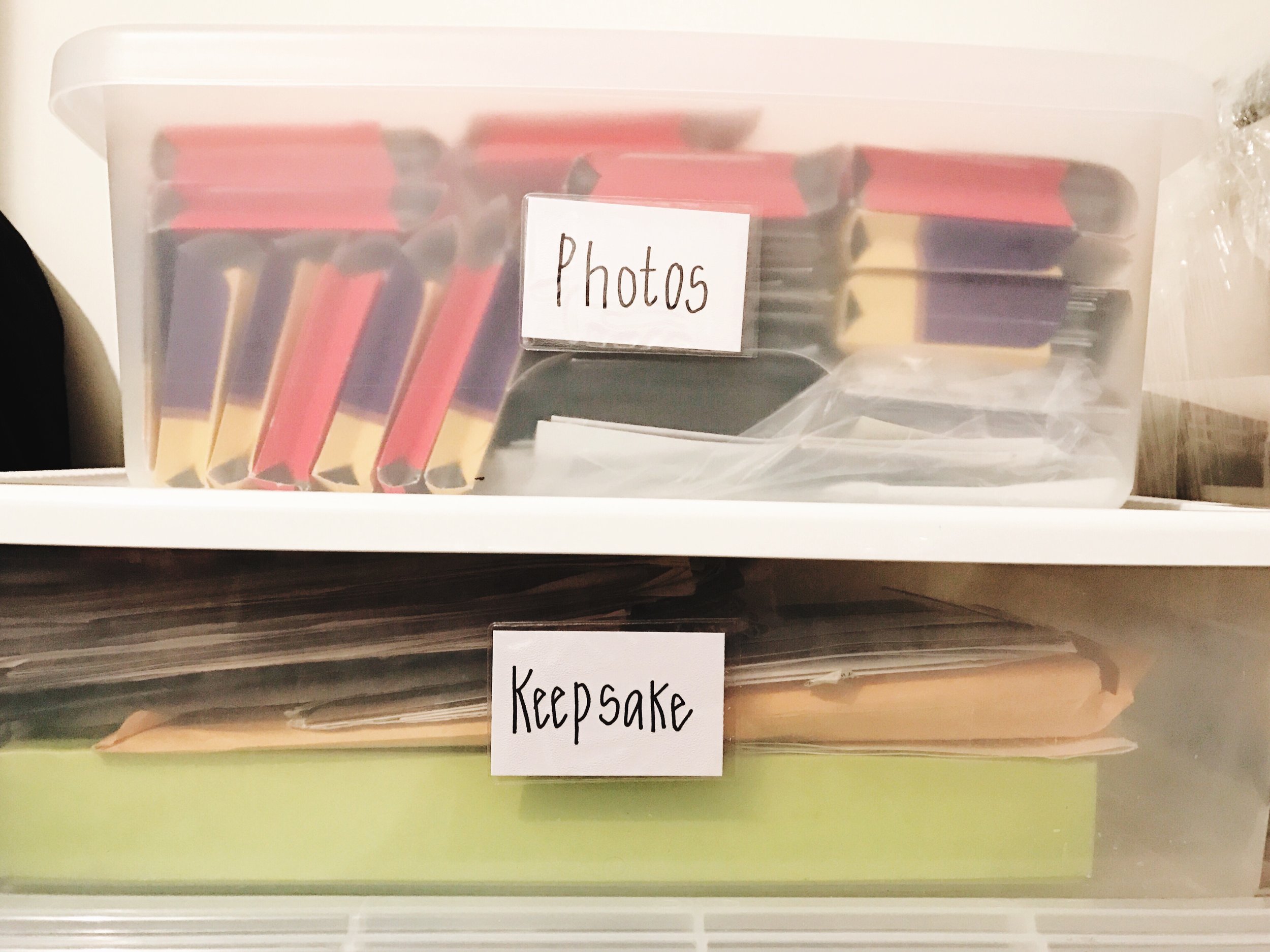
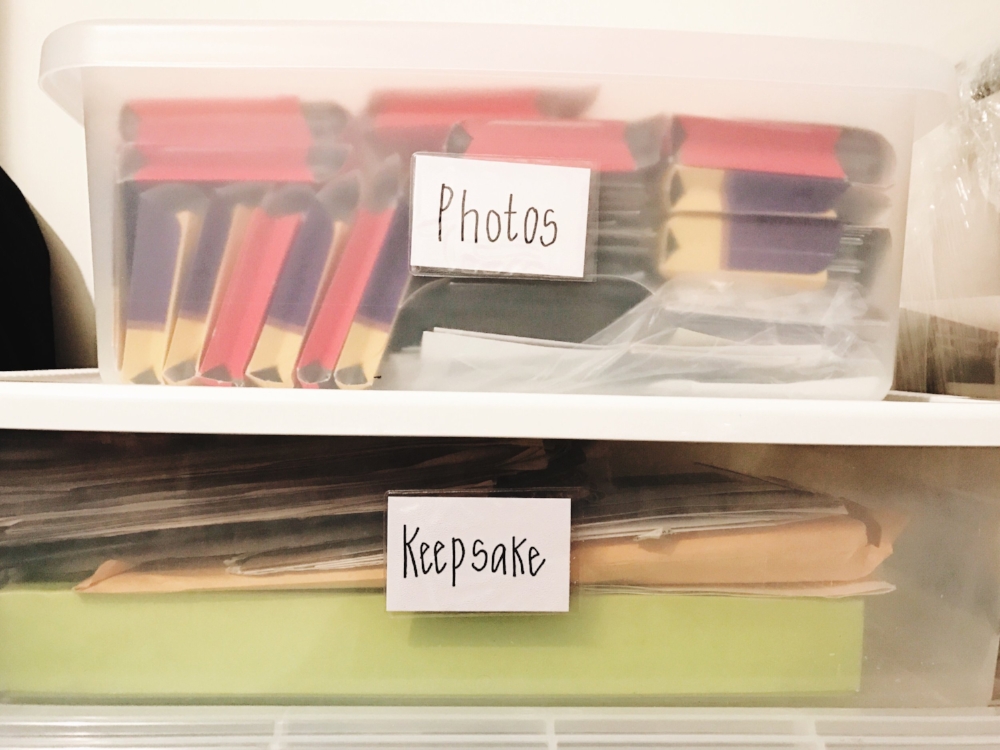
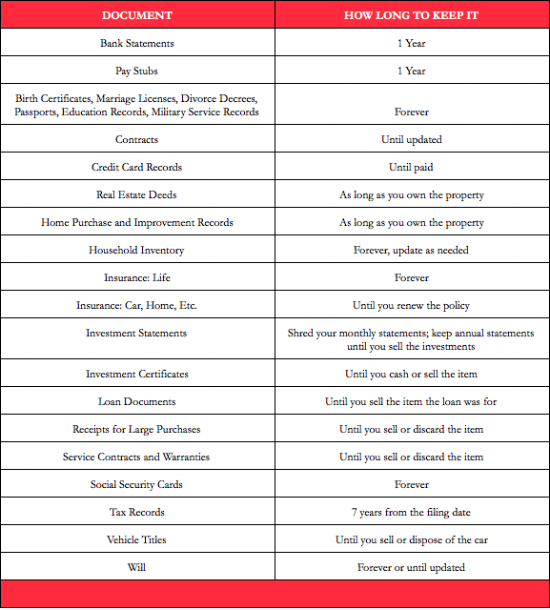
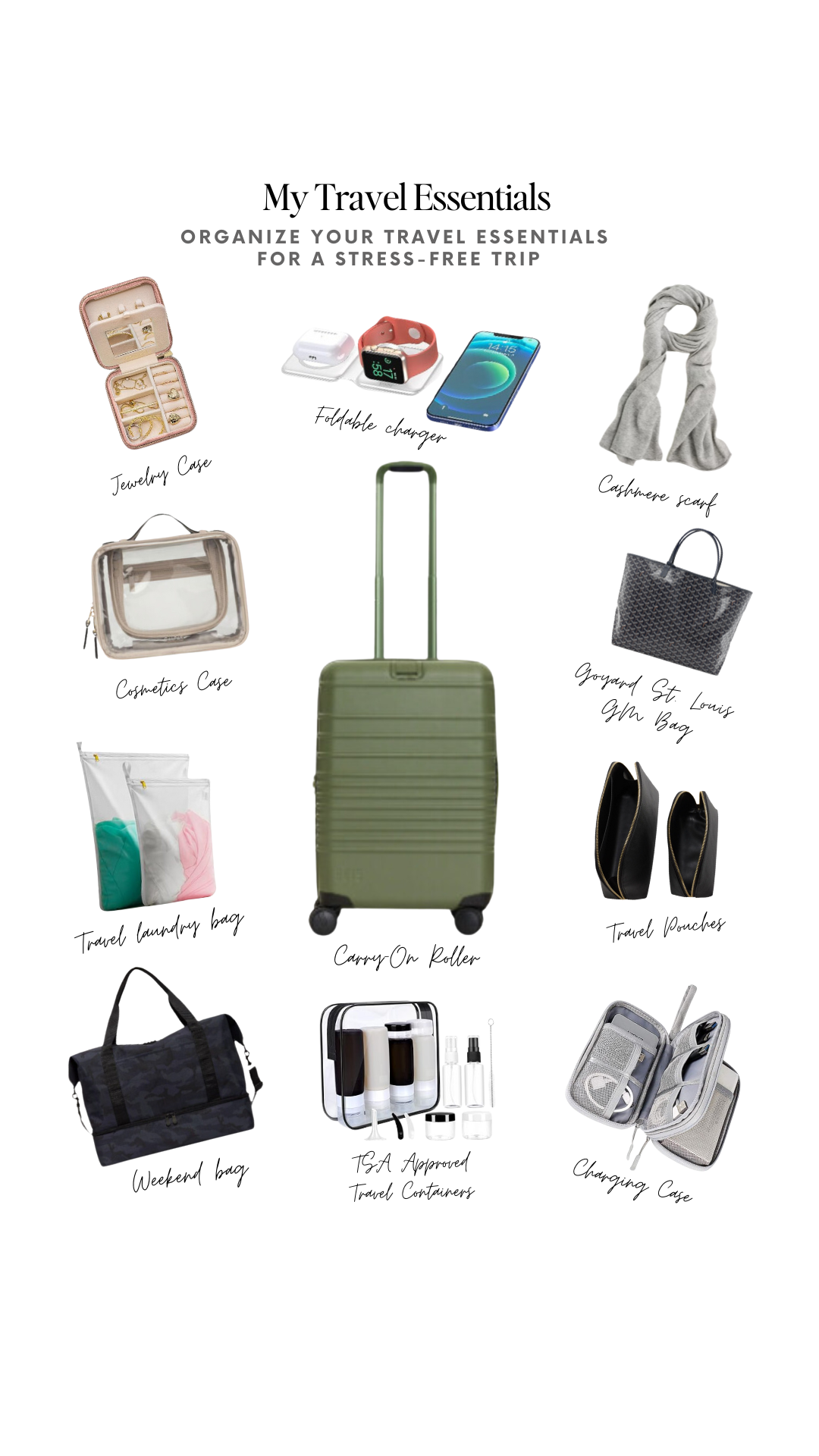
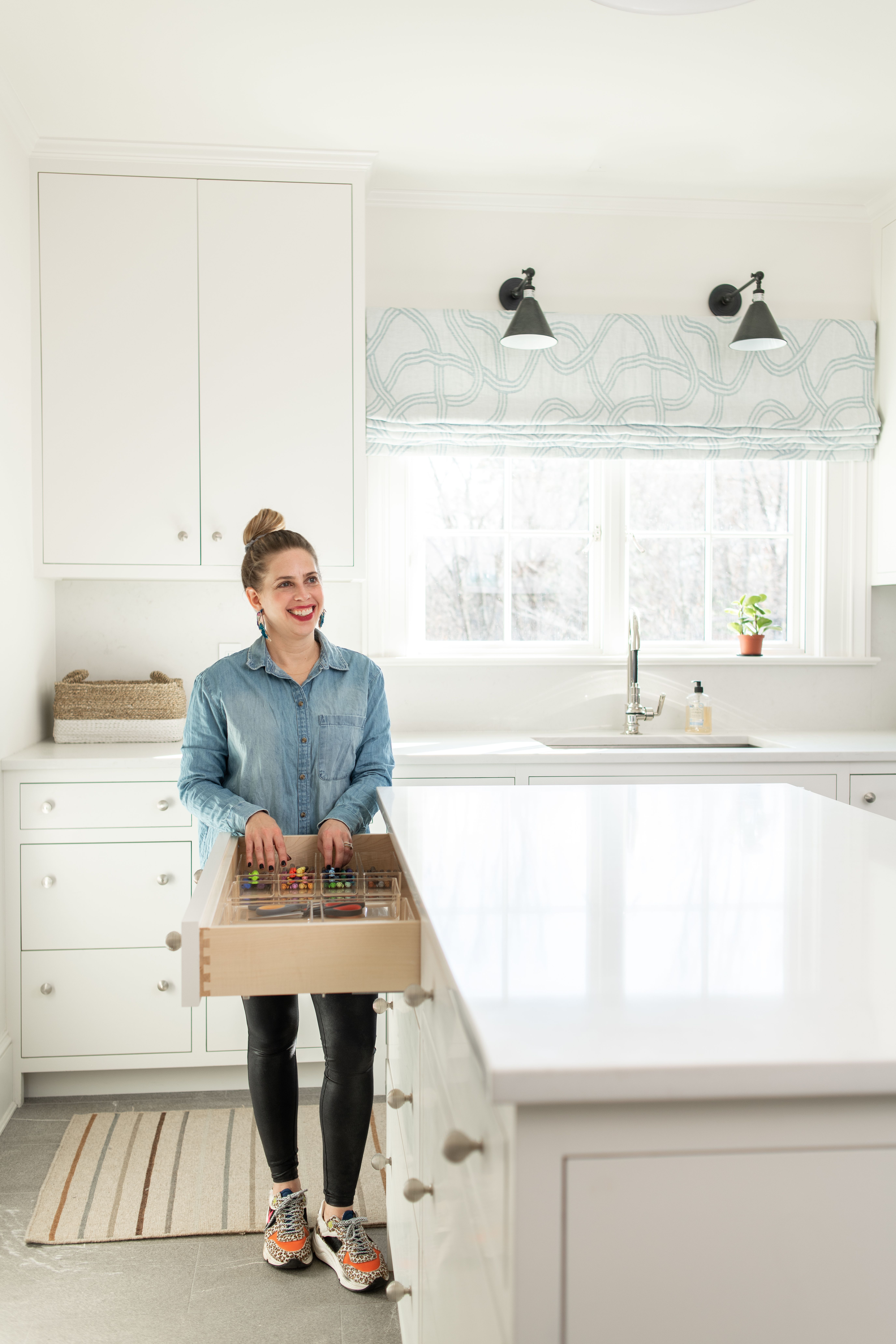
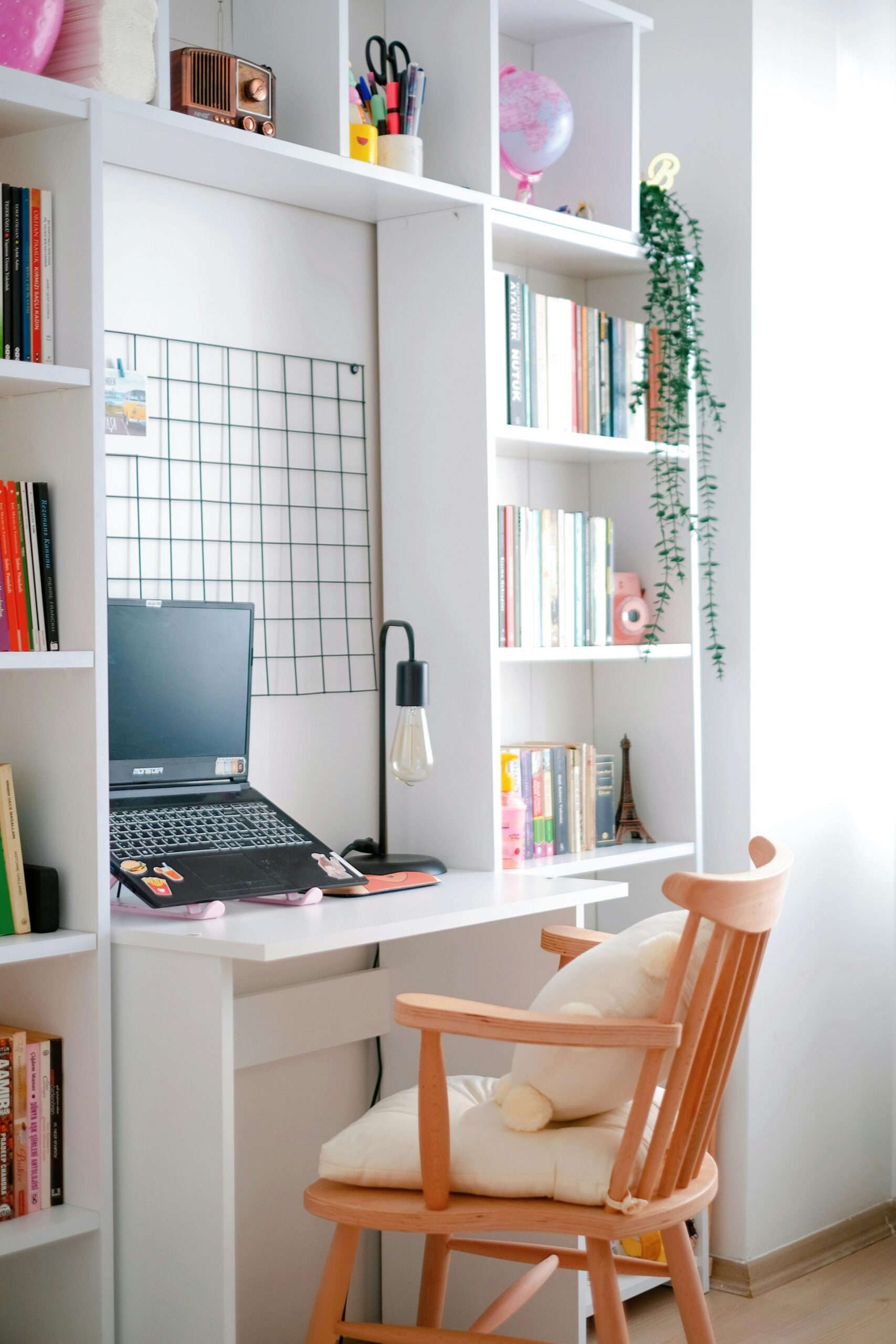
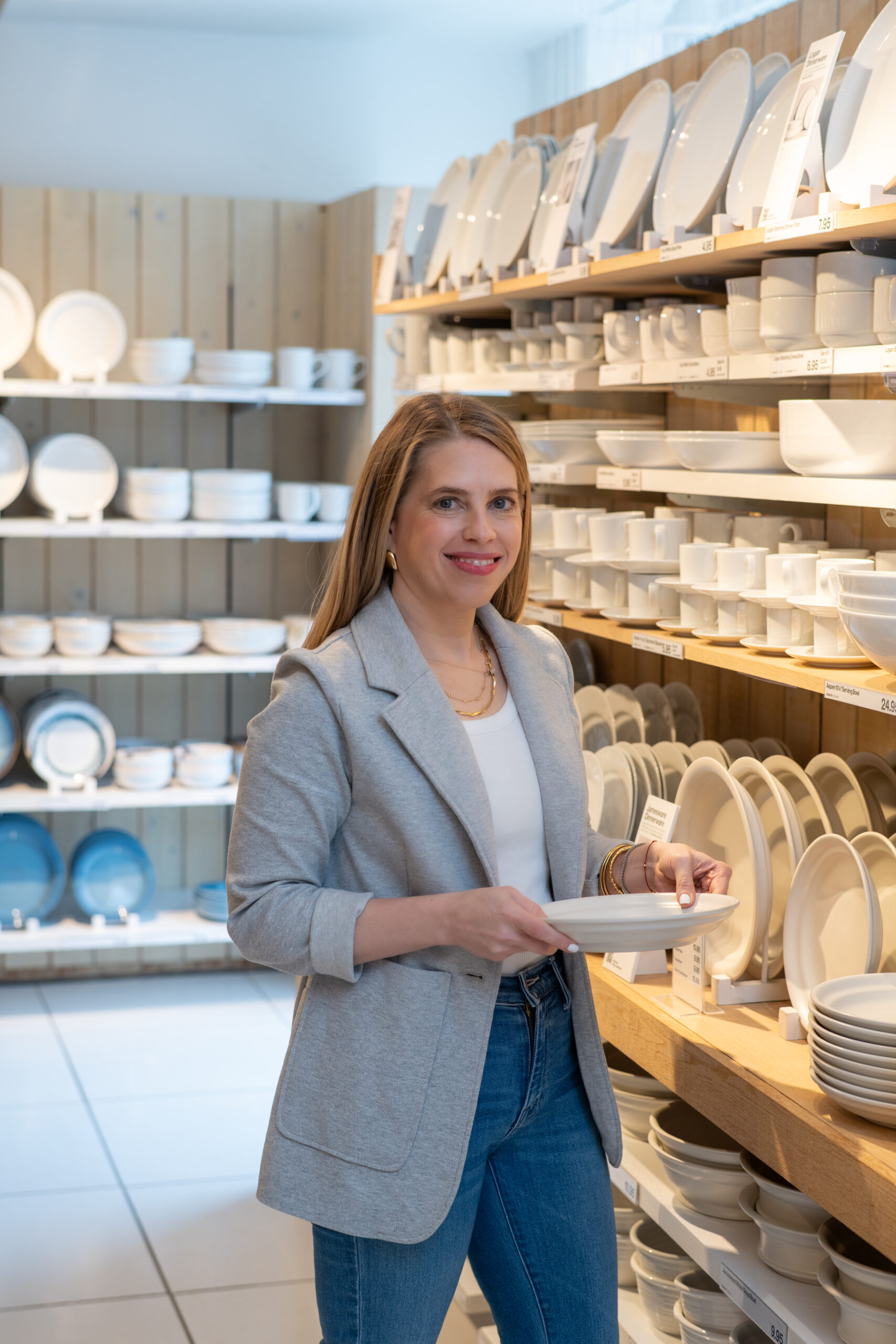



I have to disagree with the time frame for insurance documents. On one occasion I actually needed information from insurance documents that were over 10 years old. Also, I recently learned from a tax attorney that the IRS will only audit up to 3 years back, so perhaps 7 years of records is no longer necessary???
Thanks so much for your thoughts. We have gotten our information directly from government sites so while I would like to officially give you the ok to toss these items, legally, these are the timeframes that the government uses. But, don’t let me stop you! 🙂